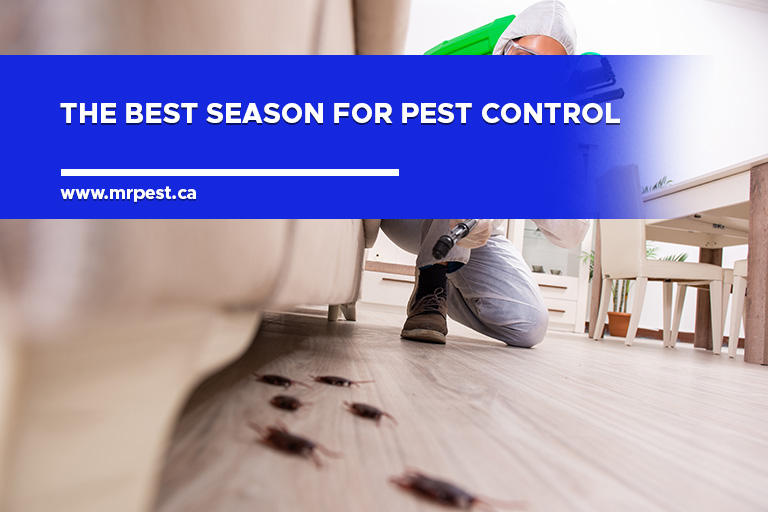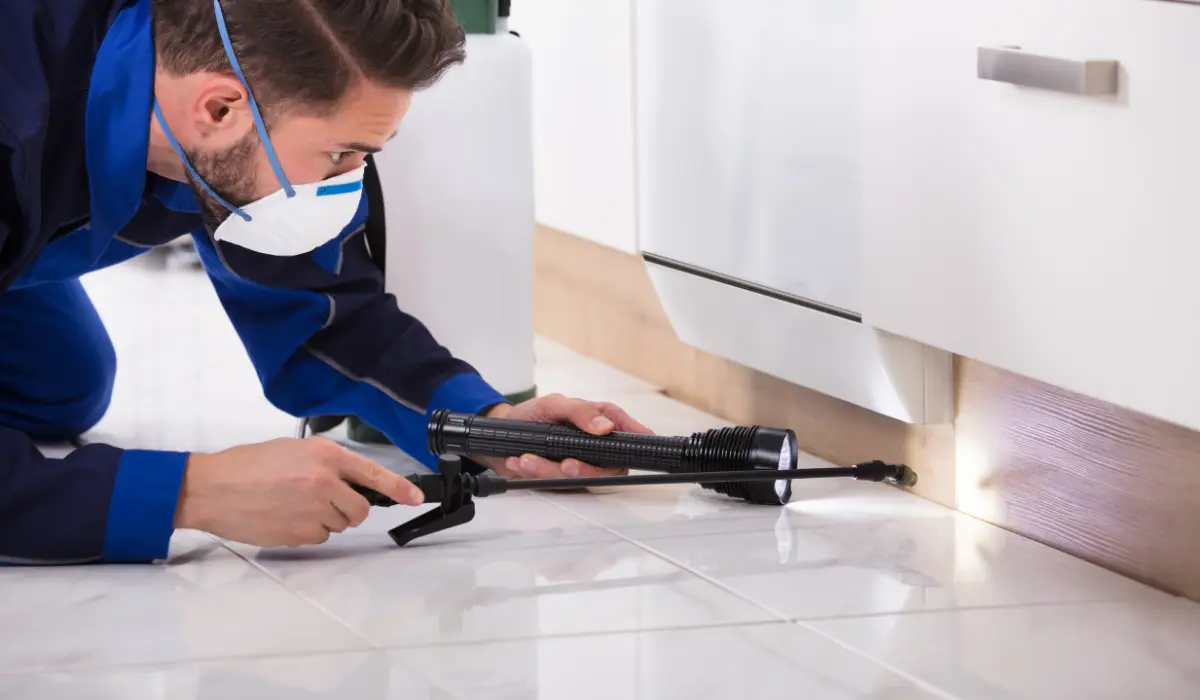Reliable Pest Control Coquitlam BC: Your Local Experts in Pest Management
Reliable Pest Control Coquitlam BC: Your Local Experts in Pest Management
Blog Article
Safe and Reliable Pest Control for Lasting Defense
Efficient parasite administration calls for a multifaceted technique that balances ecological integrity with the requirement for effective insect reductions. The nuances of these approaches might not be right away clear, motivating a better examination of the practices that can lead to sustainable parasite control end results.
Comprehending Bug Control Techniques
Parasite control encompasses a selection of methods targeted at handling and eradicating undesirable pests and rats that can endanger both wellness and property. Comprehending these approaches is vital for effective insect administration.
The main classifications of insect control techniques include mechanical, biological, and chemical techniques. Mechanical approaches entail physical obstacles and traps to avoid insect access and capture unwanted types. As an example, using screens on windows or employing sticky catches can considerably reduce bug populaces without introducing hazardous substances.

Chemical insect control is often the most acknowledged approach, making use of pesticides to remove insects. These chemicals can be efficient but have to be made use of with care to prevent damaging effects on non-target species and the setting.
Benefits of Eco-Friendly Solutions
Exactly how can green solutions transform insect control techniques? The adoption of green pest control approaches uses numerous benefits, substantially improving the efficiency and security of bug administration.

Another benefit is the favorable effect on local biodiversity. Environment-friendly services are designed to target certain bugs while preserving helpful pests and wildlife, promoting a well balanced environment. This method lines up with the growing customer demand for sustainable techniques, enhancing the online reputation of parasite control providers.
Integrated Parasite Administration Strategies
The application of environment-friendly solutions normally leads to the adoption of Integrated Parasite Administration (IPM) approaches, which further improve parasite control effectiveness. IPM is an alternative method that incorporates numerous tactics to manage pest populaces while lessening environmental effect. This technique stresses using biological, cultural, mechanical, and chemical controls, making certain a well balanced and lasting technique of pest management.
One essential facet of IPM is the thorough assessment of pest task and ecological conditions. By checking pest populaces and recognizing their life cycles, professionals can implement targeted treatments that interrupt the parasite's habitat or lifecycle, reducing reliance on chemical pesticides. Furthermore, cultural techniques such as crop turning and habitat adjustment can substantially decrease pest establishment and reproduction.
An additional critical element is the use of biological control representatives, such as useful bugs or microbes, which can normally reduce parasite populations. When chemical applications are required, IPM focuses on the usage of low-risk termite control prices pesticides and applies them precisely, reducing direct exposure to non-target organisms and original site human beings.
Including IPM strategies not just improves pest control effectiveness however additionally advertises a safer ecological community, lining up with the growing demand for lasting techniques in bug administration.
Safe Practices for House Owners
Understanding the value of risk-free techniques in insect control can equip home owners to effectively handle parasite problems while securing their health and wellness and the atmosphere. Carrying out non-toxic techniques and preventative actions is vital in decreasing exposure to unsafe chemicals.
Home owners must first evaluate their atmosphere for conditions that bring in parasites, such as standing water, food, and mess waste. Consistently cleansing and sealing access points can deter pests from invading the home. Utilizing natural deterrents, such as important oils or diatomaceous earth, can give effective options to chemical pesticides.
When chemical treatments are necessary, house owners should go with items that are specifically identified as secure for household use. It is necessary to adhere to application guidelines thoroughly to stay clear of too much exposure. Moreover, using targeted treatments in areas where bugs are identified, instead than blanket splashing, can substantially lower chemical usage.
Lastly, maintaining open communication with parasite control specialists is vital. House owners must inquire concerning the safety and security of items utilized and demand environmentally friendly choices whenever feasible. By taking on these risk-free methods, home owners can develop a healthier living setting while successfully handling insect concerns.

Tips for Long-Term Protection
Developing an insect administration approach that highlights long-term defense can greatly enhance the performance of the safe methods previously gone over. To attain this, property owners ought to carry out normal examinations of their home, concentrating on concealed areas such as attics, cellars, and crawl rooms. Early detection of bug activity is crucial in avoiding infestations from holding.
Additionally, preserving a clean atmosphere is vital. This includes proper food storage, without delay cleaning spills, and consistently getting rid of garbage. These methods lower attractants that attract pests right into the home. Sealing entry factors, such as cracks around home windows and doors, can effectively block potential bug access.
Landscape design needs to also be thought about; maintaining plants cut and maintaining a distance in between plant life and the home decreases hiding spots for pests. Using all-natural deterrents, such as vital oils or diatomaceous planet, can better prevent infestations without turning to extreme chemicals.
Last but not least, collaborating with an expert pest control service for periodic analyses can provide an additional layer of safety. These specialists can use customized referrals and advanced therapies, ensuring that your home continues to be secured against pests in the long term.
Final Thought
To conclude, risk-free and dependable insect control calls for a diverse technique that highlights environment-friendly techniques and integrated anonymous parasite monitoring. By carrying out natural deterrents, conducting normal evaluations, and preserving correct hygiene, building owners can substantially lower parasite populations while securing advantageous bugs and the environment. Partnership with professional insect control solutions enhances the effectiveness of these methods, ensuring tailored remedies that offer long-term defense and assurance against future problems.
Effective pest monitoring calls for a complex method that balances environmental stability with the need for effective bug reductions. The fostering of green parasite control techniques provides many benefits, considerably improving the effectiveness and safety of bug management.The application of eco-friendly solutions naturally leads to the adoption of Integrated Insect Monitoring (IPM) methods, which further enhance bug control efficacy. exterminator coquitlam. By keeping an eye on insect populaces and recognizing their life cycles, experts can apply targeted interventions that disrupt the parasite's environment or lifecycle, reducing dependence on chemical pesticides.In final thought, reliable and secure parasite control requires a diverse strategy that emphasizes eco-friendly techniques and incorporated pest administration
Report this page